Food delivery service is taking the street by storm. Chances are you might have seen them during peak hour – either calls themselves UberEATS, JustEat, GrubHub, Food Panda or Deliveroo. Regardless, it is a competitive industry with each company having to work to provide low costs, interesting restaurants, fast delivery time and of course, quality food.
While UberEATS is an extension of Uber, an U.S.-based ride-hailing company, Food Panda is a Germany-based global mobile food delivery marketplace with presence in 193 cities armed with over 15,733 delivery riders. Food Panda has since been acquired by Delivery Hero in December 2016. UK-based Deliveroo, meanwhile, has just raised US$385 million in new funding 2 months ago.
At a valuation of over US$2 billion, Deliveroo has promised its investors of aggressive plans to grow its business. The start-up says it is devoting “a significant chunk” of new funds into expanding a model that isn’t offered by publicly-traded rivals Delivery Hero and Just Eat. Calling it Deliveroo “Editions” (previously RooBox), the new plan is fabulously sexy for small restaurants.
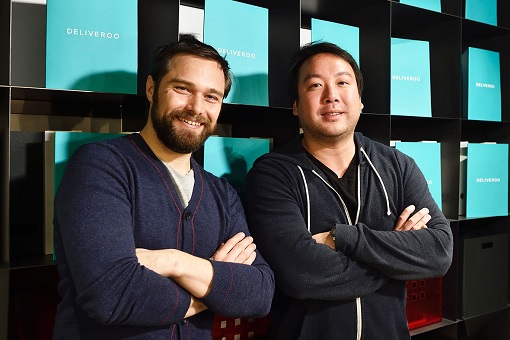
Founded in 2013 by Americans Will Shu and Greg Orlowski, the London-based Deliveroo’s brilliant idea is building its own kitchen facilities. It will then invite local restaurants to operate a kitchen on those premises, so that food can be delivered quickly from that location. It is like a United Nations of restaurants, with presence from each participant restaurant.
The central kitchen formula enables partner restaurants to expand without any of the traditional upfront costs. It offers a low-risk investment by local restaurants wishing to expand their business to new market. The programme will also enable the increase of food selection for customers, not to mention optimizing delivery times.
Obviously, the new business model is a fantastic idea because in Singapore, where Deliveroo began serving food to Singaporeans on November 20, 2015, Goldman Sachs-backed competitor Food Panda is expected to launch a similar model. The new funding will also enable Deliveroo to invest in its technology team to improve the speed and number of deliveries that can be made.
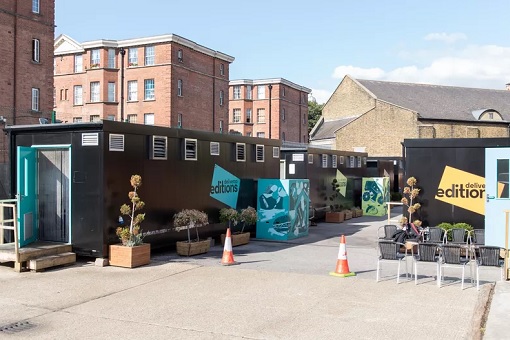
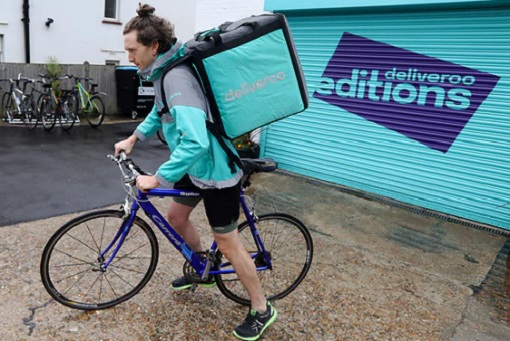
The third aspect of business improvement that Deliveroo has in mind is to rapidly expand into new towns, cities and countries. The start-up is currently operating in about 140 cities in 12 countries with revenue of US$170 million in 2016. Still, it made an operating loss of about US$187 million due to high cost. The gross profit margin was at razor-thin of just 0.7%.
Deliveroo is a relatively simple service that allows users to order from their favourite restaurants within a 32 minute time frame. But the unbelievable thin profit margin goes to show that even in such a simple business, it’s a tough nut to crack. In Singapore, they plan to improve the delivery times to mind-boggling 20 minutes.
In fact, competition is so fierce that Food Panda has closed down its business in Indonesia last year after pulled out of Vietnam market a year earlier in 2015. Therefore, the idea of centralized kitchens could achieve a faster delivery time because they won’t have dining customers hence, food can be prepared 50-60% faster than in a conventional restaurant.
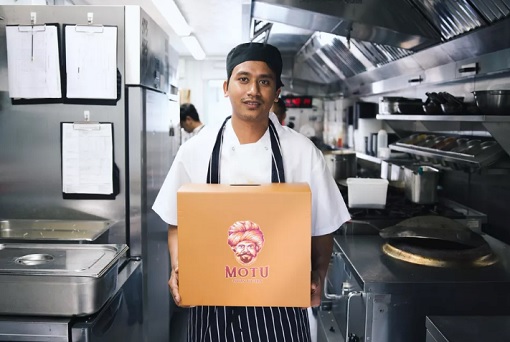
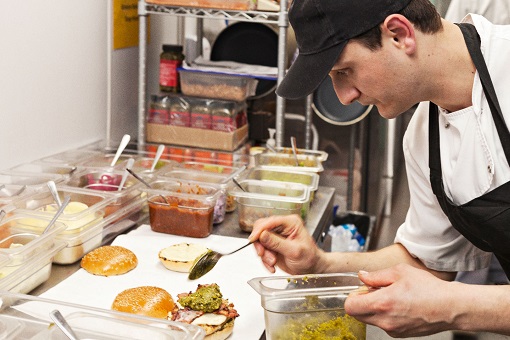
The concept of centralized kitchens, which is called “dark kitchens” in United Kingdom, is a huge success to restaurants that want to expand their businesses without opening expensive high street premises. Deliveroo is responsible to find and equips the locations, then rents them out to the restaurants, which either deploy their existing staff or train the kitchen staff.
Essentially, metal boxes of a similar size to a shipping container are set-up and fitted with industrial kitchen equipment. Deliveroo operates about 11 such sites that are home to 66 dark kitchens in Britain, ranging from London to Leeds, Reading and Hove. Some of them are tucked away in car parks or on industrial estates.
The locations may be unglamorous but all the kitchens are close to residential and office areas filled with customers hungry for upmarket takeaways. Deliveroo has big ambitions for its “Editions”, with plans to open more in London’s Swiss Cottage, Nottingham and Cambridge soon, and Manchester and Birmingham lined up for more boxes next year.
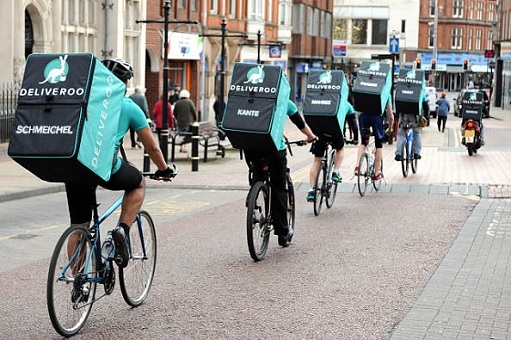
By the end of 2017, Deliveroo had planned to have more than 200 dark kitchens on 30 sites across the UK. Unfortunately, that target has been missed due to complaints from residents and councils, who accuse the company of bypassing planning rules. Southwark council, for example, said the noise of delivery vans and mopeds was a nuisance to neighbours.
To reduce noise problem, Deliveroo is considering the use of more pushbikes to deliver food, rather than vans and mopeds. But not everyone was critical of the “dark kitchens”. Some residents living in and around Rooboxes / Editions say they welcome the opportunity for jobs for young people. Delivery time is “key” to the whole food delivery business and operation.
Based on 22 minutes before foods are ready for pickup and delivery, drivers or cyclists will need to be well utilised and be typically within a 2.2-km radius to arrive within 12 minutes of pickup, which leaves a cyclist with 8 minutes to serve the 2.2-km radius. The cyclist being within a 2.2-km radius of a restaurant is important because it allows Deliveroo to fit in as many orders within an hour.
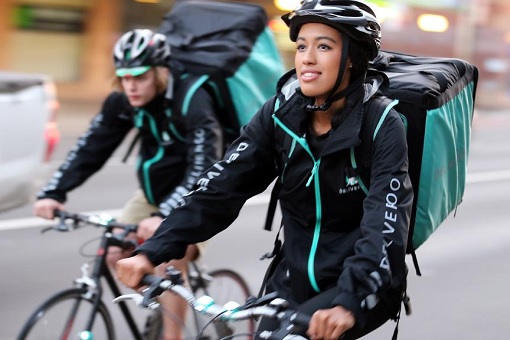
Deliveroo derives their revenue in the form of delivery fees at £2.50 (US$3.30; RM13.60) and 10% commission fees from restaurants. With an average order of £30 (US$39.90; RM 163.70), a typical order will generate around £5.50 (US$7.30; RM30). Within an hour, it is estimated that Deliveroo could earn around £16.50 (US$21.90; RM90) per driver / cyclist.
Other Articles That May Interest You …
- $100,000 Cover-Up – How Uber Kept Quiet After 57 Million Customers’ Data Were Stolen
- This Fast Food Restaurant Is More Profitable Than KFC / McD, And They Close On Sunday
- Food Scandal! – Subway’s Chicken Sandwich Contains Only 50% Chicken
- KFC Chickens With Six Wings & Eight Legs, Anyone?
- Wanna Work At McDonald’s? Here’re 20 Job Interview Questions & Answers
- 20 Awesome Fast Facts About McDonald’s That You May Not Know
- American Top-20 Best Burger That You Must Try
- 15 Fast Food Restaurants You Wish Would Come Here

|
|
November 28th, 2017 by financetwitter
|


|

|

|

|

|

|






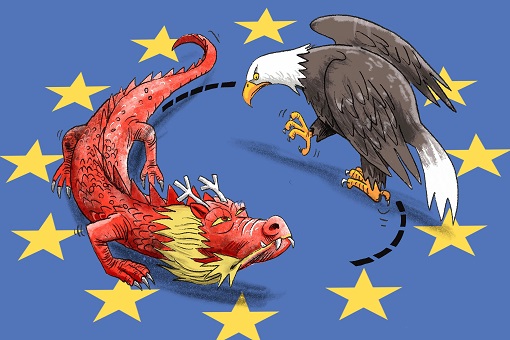





















Comments
Add your comment now.
Leave a Reply